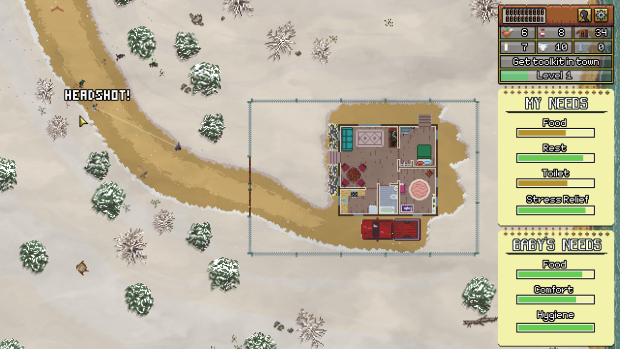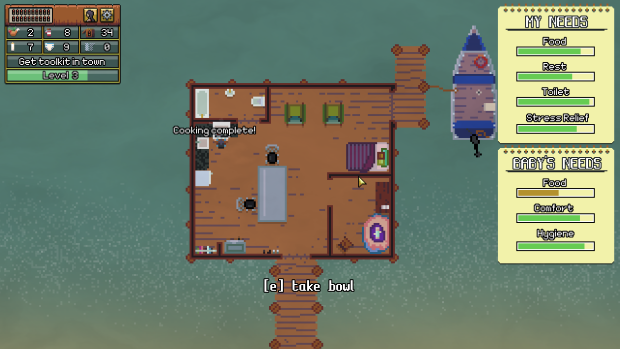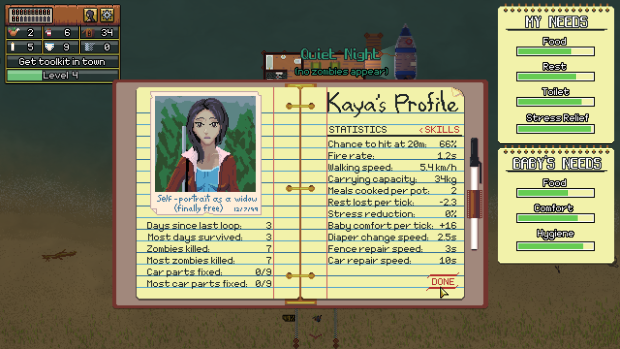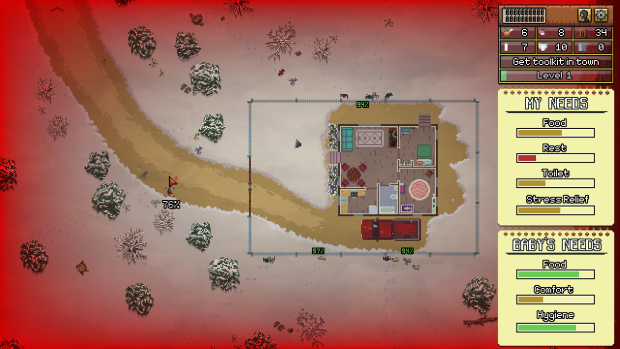My zombie survival life sim They Don't Sleep arrives next month on Steam, and I thought I'd use this late-stage dev log to talk about what I'm doing now, which I'm going to state straight-out is the hardest part of game development.
When I started building my game, it was pure excitement and novelty. I had an idea, and I was bringing it into reality: A life sim where you run out and fight zombies and collect supplies, then go home and take care of a baby and all your other daily tasks. It was a zombie game I hadn't seen before, not focused on combat or crafting, but on managing your daily routine in a dire situation. Killing zombies would simply be one part of that routine.
The first few weeks were incredible. I was prototyping art, smashing together systems, and every day it felt like another big piece of my vision would clunk satisfyingly into place. This part of game dev is the best high, and I think it's why so many people try to do this.
A month after that, the excitement was beginning to fade. The basics were in place, but now I had to flesh them out.
Now, almost a year into development, it's just work. Hard, tedious, sometimes-frustrating work. My game is a teetering pile of stuff. We talk about "polish" when we talk about making a good game, but that's a misnomer. To polish something is to remove material, to smooth it out and simplify it. When we "polish" a game what we're really doing is adding more stuff on top of it. Those cute little menu transitions. Dozens of extra sound effects. Customizable controls and other settings for the player. Achievements. None of this makes anything "smoother". It makes it feel better, it helps engage the player, and it lends a feeling of quality. But it's not polish, it's variegation. And every little bump of improvement you add to the mottled patchwork makes the whole project bigger and harder to manage. And none of it is exciting to implement. It's busywork, but it's busy work you have to do if you want to make a good game.
My menu systems just broke for the umpteenth time, mainly because of the hacked-in systems I used to allow them to have satisfyingly-animated transitions, and I'm done with it.
But the game will be better for all this frustrating, tedious work. It will feel more professional, and the player will be glad to be able to earn achievements (I hope), and the soundscape might not be actively noticed, but it will all lend to a feeling of quality.
Just be prepared. For every week you spend adding awesome features to your game, you're going to spend three more fiddling with them and tacking stuff on to turn it from a prototype into a "real" game.
And in the end, it'll be worth it. Wishlist They Don't Sleep now on Steam if you want to check it out when it arrives in September.







